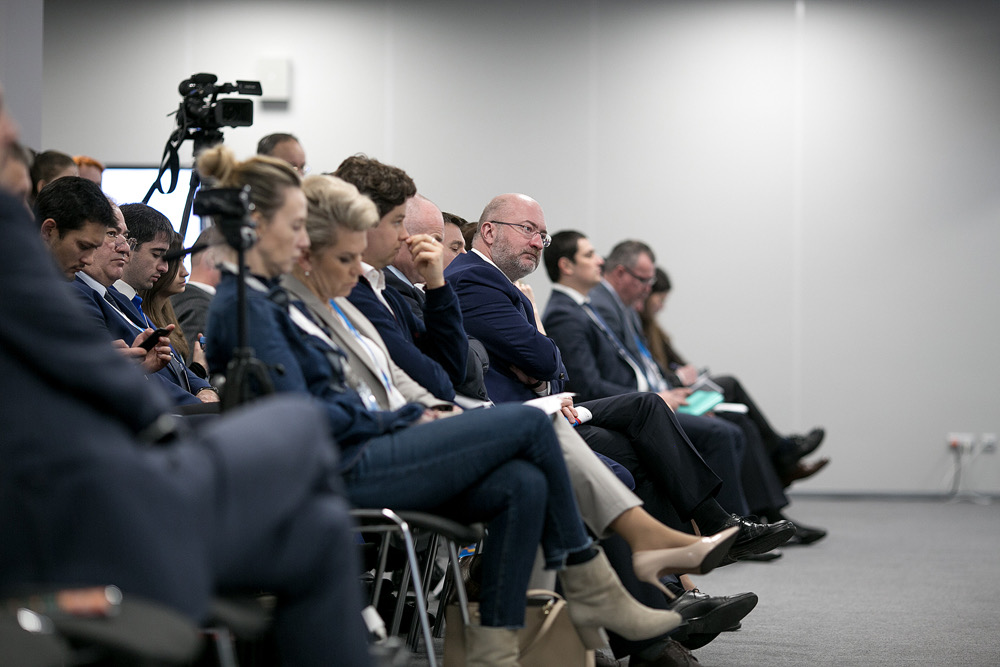A Tourism Development Strategy to be Designed for the Northern Caucasus
A comprehensive development strategy of the tourist industry shall be created for regions of the North Caucasus Federal District. The Ministry of the North Caucasus Affairs of the Russian Federation shall take up the development of the document, with the involvement of industry experts and representatives of tourist business. Andrei Reznikov, Deputy Minister of the Russian Federation for North Caucasus Affairs, Chairman of the Board of Directors of Joint-Stock Company Northern Caucasus Resorts, told about that in the course of the session Domestic Tourism: Potential and Barriers, held within Russian Investment Forum Sochi 2017.
‘The North Caucasus is one of the most attractive tourist destinations in the country, however, when we talk about the South of Russia, we first imagine the well-known tourist brands: the Stavropol Territory resorts or Sochi. The State should further specify the territorial potential,’ he said. According to Andrei Reznikov, just recently, the emphasis was placed on the ski holiday component, within the implementation of which the integrated approach in developing tourist clusters has proved its efficacy in just a few years. ‘The translation of this experience will underlie the strategy that will identify other promising directions in tourism development as well,’ the Deputy Minister said.
He stressed that such a strategy will consolidate municipal, regional and federal resources for the development of tourism in general and develop tourist clusters not in isolation of each other, but within the common logic. In addition, the strategy will make it possible to implement and replicate successful world practices to create tourist infrastructure facilities, enhance the investment attractiveness of the whole tourist complex in the NCFD and find a way to private business, ready to invest in tourism, with specific projects and transparent methods of stimulation and support.
Speaking about the successful experience of capacity development through efforts of the State, Oleg Gorchev, Director General of JSC NCR, told about the creation of Arkhyz resort within the North-Caucasus tourist cluster and the dynamics of attracting private investment. ‘For several years of development, we have more than 27 residents of the SEZ with total investment of more than 9 billion rubles, while the accommodation business is low-margin. Our goal was to show the attractiveness of investments, that we did due to stimulating the constant high tourist flow, subsidizing interest rates on loans, preferential conditions on land and infrastructure, available through the mechanism of the SEZ,’ the head of the company Northern Caucasus Resorts stressed. ‘The industry requires both regulation and government attention. And only in such circumstances we will satisfy the interests of private business and the tourist. Business needs profitability, albeit long-term, and the tourist - favorable conditions for his holidays,’ Oleg Gorchev said.
Yuri Barzykin, Vice President of the Russian Union of Travel Industry, also emphasized the importance of State support and regulation mechanisms in integrated development of the tourist industry. ‘There are prospects, but adequate regulatory mechanisms are required. This regards both the resort fee and subsidies for flights, and other mechanisms to ensure the availability of Russian resorts. Tourism is, first and foremost, a platform of interaction between the government and business, and here they should have equal rights,’ he added.
Speaking about the importance of supporting tourism in developing non-energy economic sectors, Oleg Safonov, Head of the Federal Tourism Agency, stressed that tourism is a whole industry, not just a sector. ‘For the development of tourism, 53 economic sectors must work, and this is a whole layer of the economy. The development of the industry also develops infrastructure and quality of service. The direct impact of tourism on the Russian GDP is 1.5%, while the world’s average is 10%,’ he said. According to the Head of the Federal Tourism Agency, the attractiveness of the industry for investors is severely affected by expected multiple growth rate of domestic tourism, based on the full-fledged state support, which lead to progressive change in the percentage ratio.



